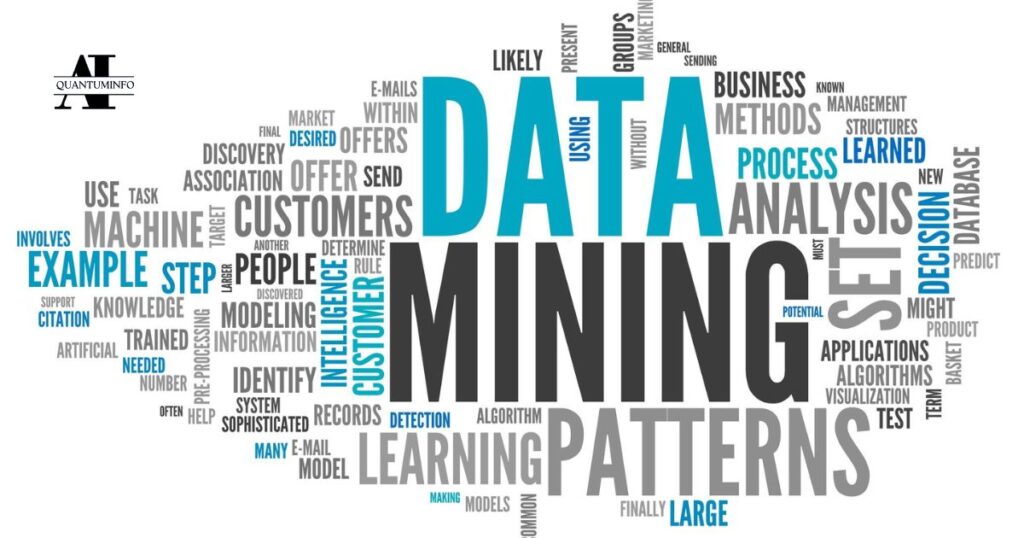Real estate is changing rapidly. Data mining and AI are leading the way. These tools help find hidden gems in the property market. They process a lot of information quickly. This helps buyers and sellers make smart choices. It also shows where the best deals can be found. With AI, the real estate game is becoming more interesting and rewarding.
Want to find hidden treasures in real estate? This is possible with AI. Imagine knowing the next hot neighborhood before anyone else. Find the perfect investment property in minutes. Think about predicting market trends with amazing accuracy. This is the power of data mining and AI in real estate. It’s like having a crystal ball for property markets. Ready to uncover opportunities others can’t see?
Data mining digs up a lot of information. It looks at things like home prices and neighborhood statistics. AI then uses this data to look for patterns. It can spot areas where prices may soon rise. It also looks at which homes are selling the fastest. This helps investors know where to put their money. For home buyers, this can find great deals that others may miss. AI makes sense of complex real estate data faster.
What is data mining?
Data mining is like digging for treasure in a huge pile of information. It finds patterns and useful bits in large data sets. In real estate, there is a lot of data to look at. This includes home prices, sale dates, and neighborhood information. Data mining helps to understand all this information.
How does AI fit in?
AI is like a super smart computer brain. It can learn from data and make decisions. Magic happens when you combine AI with data mining. AI can spot trends and make predictions. It does this faster and more accurately than humans.
The Power of AI and Data Mining in Real Estate

Together, these tools are changing how we buy and sell homes. They are looking for opportunities that were hard to see before. Here’s how they differ:
- Finding the best deals
AI can see thousands of homes for sale in seconds. It compares prices, features, and locations. This helps in finding houses that are priced lower than their actual value. Investors and homebuyers can quickly find great deals.
- Forecasting market trends
By looking at past data, AI can predict what might happen next. This can predict which neighborhoods will be popular. This helps investors know where to buy before prices rise. It also helps sellers know the best time to list their homes.
- Personalized home searches.
Everyone has different needs when looking for a home. AI can remember what each person likes. It then shows them homes that match their preferences. This saves time and helps people find their perfect home faster.
- Better property prices
Figuring out how much a home is worth can be difficult. AI makes it easier and more accurate. It looks at many factors that affect the value of a home. This includes things like nearby schools, crime rates, and future development plans. This helps in setting fair prices for buyers and sellers.
- Identifying investment opportunities
AI can identify patterns that show where good investments might be. It can find areas where home values are likely to increase. This helps investors make better choices about where to put their money.
- Better property management
For landlords and property managers, AI is a big help. It can predict when repairs may be needed. It can also help in determining the right rental prices. This makes managing properties easier and more profitable.
- Fast and smooth transaction
Buying or selling a home involves a lot of paperwork. AI can help speed up this process. It can quickly check documents for errors. This makes the whole process faster and less stressful.
Here, Canvas Artificial Intelligence
- Better understanding of customer needs
AI can analyze what home buyers are looking for. It helps real estate agents and developers. They can focus on building and selling homes that people want.
- Spotting market gaps
Sometimes opportunities are lost in the market. AI can find these gaps. For example, it can show that there is a need for more family homes in an area. Developers can use this information to plan new projects.
- Risk assessment
Buying property always comes with some level of risk. AI can help measure this risk. It looks at factors such as the local economy, the job market, and the potential for natural disasters. This helps investors to make safe choices.
Real world examples
Let’s look at some of the ways AI and data mining are already being used in real estate:
Zillow’s Zestimate

Zillow, a popular real estate website, uses AI for its Zestimate tool. This tool estimates the value of homes. It uses data from millions of homes to make its predictions. While not perfect, it provides a good starting point for home values.
Redfin’s Hot Homes
Redfin uses AI to predict which homes will sell quickly. They call them “hot homes”. AI looks at things like price, location, and features. It then predicts which homes will get offers the fastest. This helps buyers know when to take immediate action.
Immediate Open Door Offer
OpenDoor uses AI to make instant offers on homes. Sellers can receive offers in just a few minutes. AI looks at home details and local market data. It then decides on the appropriate price. This makes selling a home much faster and easier.
How AI and Data Mining Help Different People in Real Estate
These tools aren’t just for large companies. They help all kinds of people in the real estate world. Let’s see how:
For Home Buyers:
AI helps home buyers find their dream home faster. It shows them the home that meets their needs. It can also alert them to good deals. This saves time and helps buyers make better choices.
For home sellers:
Sellers can use AI to accurately price their homes. This helps them know the best time to sell. AI can also predict how long it might take to sell your home. This helps sellers plan better.
For real estate agents:
AI is like a super smart assistant for agents. This helps them find the right home for their clients faster. It also helps in giving better advice on prices and neighborhoods. This makes agents more helpful to their clients.
Here, AI Storytelling: Next-Gen Presentations
For Investors:
Investors use AI to find properties with good return potential. This helps them identify trends before others. This can lead to better investment choices and higher returns.
For property managers:
AI makes managing features easy. It can predict when repairs may be needed. It also helps in setting the right rental prices. This saves time and money for property managers.
For developers:
Developers use AI to decide what and where to build. It shows them what types of homes people want in different areas. This helps them create projects that sell well.
The Future of AI and Data Mining in Real Estate

The use of AI and data mining in real estate continues to grow. Here’s what we can see in the future:
Virtual Reality Home Tours:
AI can create detailed virtual tours of homes. Buyers can browse homes from anywhere in the world. AI can also show how furniture will look in space.
Smart Home Recommendations:
AI can get even better at knowing what we like. It can recommend homes based on our lifestyle, not just what we say we want. This can help us find homes that we love but may not have considered.
Forecast maintenance:
For homeowners and landlords, AI can predict when things around the house need fixing. This can help prevent major, costly problems.
Auto-negotiation:
AI can help with price negotiations. It can suggest reasonable prices based on a lot of data. This can make buying and selling homes less stressful.
Improved Fraud Detection:
AI can get better at spotting fake listings or scams. This will make buying and selling houses safer for everyone.
Challenges and concerns
While AI and data mining offer many benefits, there are also some concerns:
Privacy Concerns:
As AI consumes more data, some people are concerned about their privacy. Companies must use data responsibly and protect people’s information.
Justice and Prejudice:
AI systems can sometimes have biases. This can lead to unfair treatment in housing. It is very important to check AI systems to make sure they are fair to everyone.
Over-dependence on technology:
While AI is helpful, it’s not perfect. There is a risk of people trusting AI too much and not using their judgment.
Job Changes:
As AI takes over, some real estate jobs may change. People in the industry will need to learn new skills to work with AI.
Data Quality:
AI is only as good as the data it uses. If the data is inaccurate or incomplete, the results of the AI will not be reliable.
How to Make the Most of AI and Data Mining in Real Estate

If you are involved in real estate, here are some tips to take advantage of these technologies:
Stay informed:
Keep learning about new AI tools in real estate. Knowing what’s available can give you an edge.
Use multiple tools:
Don’t rely on just one AI tool. Use several to get a more complete picture.
Combine AI with human insight:
AI is a tool, not a substitute for human judgment. Use AI to inform your decisions, but also trust your instincts.
Focus on data quality:
If you’re using AI tools, make sure you’re feeding them good data. Correct information leads to better results.
Be ethical:
When using AI and data mining, always consider privacy and fairness. Use these tools in a way that benefits everyone.
Adopt and learn:
The world of AI is always changing. Be willing to learn new things and adopt new tools.
Understand the limitations:
Learn what AI can and cannot do. This will help you use it more effectively.
Frequently Asked Questions
How can AI algorithms analyze historical real estate data to predict future market trends?
AI algorithms can analyze historical real estate data to predict future market trends by identifying patterns in price fluctuations, sales volume, and economic indicators. These forecasts can help investors and developers make informed decisions about when and where to invest.
What kinds of non-traditional data sources can be mined to gain insight into property values and neighborhood aspirations?
Non-traditional sources of data for real estate insights can include social media sentiment, satellite imagery, and local business growth patterns. Mining this data can reveal emerging neighborhood trends and lifestyle preferences that affect property values.
How can machine learning be used to improve rental pricing strategies for property managers?
Machine learning can optimize rental prices by analyzing factors such as weather, local events, and competitive pricing in real time. This dynamic approach to pricing allows property managers to maximize occupancy and increase revenue based on current market conditions.
In what ways can natural language processing of property listings and reviews uncover valuable information for buyers and sellers?
Natural language processing of property listings and reviews can reveal valuable insights by identifying frequently mentioned properties, sentiment analysis, and emerging neighborhood characteristics. This information can help buyers find ideal properties and help sellers create compelling listings.
How can AI-powered image recognition be applied to property images to assess condition and estimate renovation costs?
AI-powered photo recognition can assess a property’s condition by identifying signs of wear, older features, or advanced finishes in a list of photos. This technology can provide an estimate of renovation costs and help buyers quickly evaluate multiple properties.
Final Thoughts
AI and data mining are powerful tools in real estate. They are helping people to find hidden opportunities and make better decisions. From finding the perfect home to finding the next hot neighborhood, these technologies are changing the game.
But it is important to remember that they are only tools. They work best in conjunction with human knowledge and experience. As these technologies grow, they will open up even more exciting possibilities in real estate.
The future of real estate is data-driven and AI-driven. Those who learn to use these tools wisely will benefit greatly. Whether you’re buying your first home, selling a property, or investing in real estate, AI and data mining can help you make better choices.









